
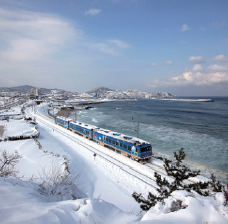
Every season, most young adults in their twenties are busy planning a backpack trip. Traveling to another country can be exciting, but traveling domestically can also be interesting. Distinctive local areas such as Suncheon, Busan, and Jeonju are quite unique. In order to promote domestic travel among young adults, the railroad company started Rail-ro. It offers exclusive train tickets for young adults, recommends accommodation facilities, and introduces travel routes. Rail-ro seems to offer a lot of benefits, but there are disadvantages. Why does the system not substantially help youth in their twenties travel around Korea?
Help of a Golden Ticket
Since 2007, Rail-ro has offered young people rail travel, which is run by the Korea Railroad Corporation. The railroad ticket, exclusive to those in their twenties, facilitates cost-effective domestic travel. Rail-ro operates each summer and winter vacation, so most university students and others in their 20s utilize it. 8,000 of Rail-ro tickets were sold in the summer of 2007, 13,000 in summer 2008, 24,000 in winter 2009, and 58,000 in winter 2010.1 Rail-ro tickets include discounts for most accommodation facilities affiliated with Rail-ro. Lee Jisun, Division of Child Welfare and Studies ’13, who traveled by Rail-ro this winter vacation said, “When I looked for general railroad tickets and guest houses, all my search results were beyond my budget. But with Rail-ro, I saved about 80,000 won in total.” The railroad travel system certainly appears to provide advantages for domestic country travelers and its sales are clearly increasing each year.
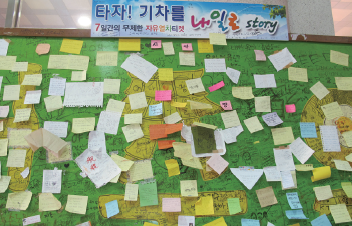
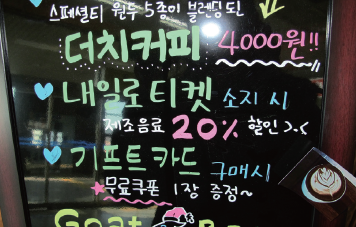
Being Overshadowed
Even though Rail-ro has advantages, its weaknesses shadow its golden benefits. Rail-ro tickets are only sold on a one-week basis, so travelers cannot make adjustments to the ticket if their travel schedule changes. For instance, if a traveler wants to travel for only 5 days with Rail-ro, he or she must still purchase a ticket that covers one week of travel. Since traveling to local areas for an entire week is strenuous, most people return home before their Rail-ro ticket expires. According to a report from the Korea National Tourism Organization, “There are many complaints by Rail-ro travelers that the weekly based tickets block them from a free travel schedule. Unfortunately, it is hard to change this one-week purchase policy because we can’t offer discount packages with one-day tickets.”2 Also, in spite of having a Rail-ro ticket, travelers don’t have a reserved seat, so they are always on standby. People who buy general train tickets have priority seating, which makes it almost impossible for Rail-ro travelers to attain a seat during peak seasons such as vacations. Park Sungeun, a student at Hankuk University of Foreign Studies ’13 said, “It was an exhausting travel. Traveling by train took quite a long time and I was on standby.” Travelers are unable to comfortably take a seat on the train since at any next stop a passenger with a reserved seat could board.
Also, Rail-ro travelers have a hard time finding baggage storage rooms or places to stay. There are not many baggage storage places at travel destinations, so most travelers carry their luggage throughout the journey. Small locker rooms exist, but they are too expensive for the short usage duration. Ra Hyuncheol, a Rail-ro traveler in Suncheon, said, “My bag was so heavy because I had to pack for six nights. But there were no baggage storage rooms at any of the tourist spots, which made it hard for me to travel to many areas.” In terms of accommodation facilities, travelers lack information about guest houses. Most travelers feel uncomfortable at the recommended guest houses due to their high cost. Even though the accommodation facilities are discounted, the prices are still high for a young adult backpacker.
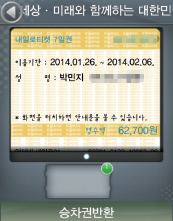
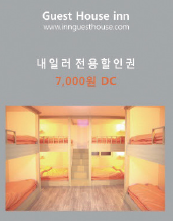
In order to make Rail-ro travel more effective, a mileage system should be established. Since it is hard to provide more benefits aside from the train tickets, seating, and discounted guest house facilities, Rail-ro should act as a travel agency and give preferential treatment to frequent users. For people who use Rail-ro almost every vacation, their high mileage could enable them to become VIP Rail-ro users. Then, they could be given more cost benefits than newer users. This recommendation would inspire many young adults to backpack about domestically, and there would be more vast information about Rail-ro available to more people. In other words, a special Rail-ro mileage system could enable those in their twenties to travel Korea more liberally.
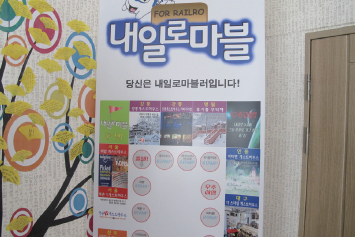
1 Lim Byungook, "Lights and Shadows About Rail-ro Traveling," Korail Magazine, September 10, 2012
2 Lee Sungtae, "Interviewer and Interviewee About Rail-ro," Korea National Tourism Organization, 2012


